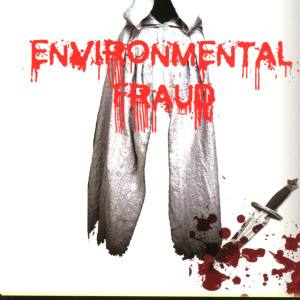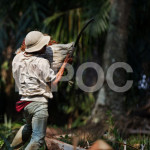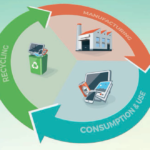Marc Tarabella’s War on Southeast Asia
Marc Tarabella, a Belgian Member of the European Parliament, has a long and undignified record of demonising palm oil.
In 2013, he had made statements that effectively accused palm oil production of being environmentally destructive, harmful to human health and violating workers’ rights – despite producing no evidence and, clearly, not being in possession of the facts.
In June this year he went on the attack again, accusing the industry of exporting so-called ‘illegal’ products – including palm oil – to Europe.
Tarabella bases this accusation almost entirely a report by FERN, a European Green NGO. The report was discredited earlier this year in detail. A rebuttal by FERN did not even attempt to address the substantive points of the critique; it simply re-stated the original propositions, with no attempt to engage in a debate. Making wild accusations and then ducking a debate is classic FERN playbook. It’s a shame that MEP Tarabella is siding with the wild accusations, and not the facts.
Tarabella made a statement and asked a question to the European Commission (EC) and appeared to be collaborating with FERN: “Can the [EC] confirm or deny the accusation that some products imported into the EU do indeed result from illegal deforestation?”
One thing that FERN attempts to do in its report is to link the high number of land claims in Malaysian courts to ‘illegality’ of the products being exported. Clearly, the fact that there is an open, transparent and effective legal system is something to be praised – rather than subjected to attacks. The role of the courts is to adjudicate.
Does Tarabella really think that Belgium has no land disputes currently under legal review? So, perhaps using his logic, should the EU ban all Belgian products as well?
As The Oil Palm has pointed out, FERN’s report failed to mention that some plaintiff claims around land use in Malaysia were also related to the main airport. Once again, no evidence was produced to justify the attack on Malaysia’s oil palm farmers.
EC’s measured response
Fortunately (and surprisingly) the response from the EC itself has been measured.
In August, it simply referred Tarabella to its large body of work on the impact of EU consumption on deforestation. One of the reasons that the EC referred to this document is because it considered the methodology used to be robust.
Some points that the study makes are:
- In terms of ‘imported deforestation’ crop imports to the EU, Malaysian palm oil only makes up around 2% of the total; this is compared with, say, Brazilian soybean, which makes up 41% of the total.
- Malaysian palm oil ranks far behind items such as Brazil nut imports, Paraguayan soybean and Ghanaian cocoa beans in terms of imported deforestation – a testament to Malaysia’s proven commitment to forest protection, as recognised by the United Nations.
- On a national basis, Malaysia makes up around 4% of the total, compared with 48% out of Brazil and 9% out of Indonesia, followed by 5% each out of Cameroon and Argentina – but this includes all crops, not just palm oil.
Why the claims are absurd
There are three points that make Tarabella’s demonising of Malaysian palm oil absurd.
- Malaysia’s contribution to ‘imported deforestation’ to the EU is miniscule in comparison with other nations and other crops. The UN, World Bank and others have consistently recognised Malaysia’s commitment to forest protection. MEP Tarabella perhaps needs to read those reports.
- So-called ‘exported deforestation’ from Malaysia to the EU makes up just a small percentage of Malaysia’s total exports. Of the many policy proposals put forward by the EU to solve the ‘problem’ of imported deforestation is to introduce a licensing arrangement for exporters of certain products that include legality criteria. The problem with this approach is that it basically inserts the EU as a third party in trading arrangements and in addition, it is failing.
The EU has tried this with timber products across the world through its Forest Law Enforcement, Governance and Trade (FLEGT) arrangements. After nearly a decade and somewhere between EUR500 million and EUR1 billion, not a single FLEGT licence has been issued.
- Tarabella holds a position as Vice-chair of the delegation for relations with the countries of Southeast Asia and the Association of Southeast Asian Nations (ASEAN). If this is the position he holds, he’s clearly doing relations with ASEAN a massive disservice. Does anyone really wonder why trade talks between the EU and ASEAN have effectively stalled?
If Tarabella is looking to reduce or harm trade relations between the EU and ASEAN countries, he seems to have found a good way to do this. However, if he is serious as Vice-Chair of ASEAN Delegation, he should focus on improving relations. Currently, he is failing dismally at this task.
MPOC










Leave a Reply